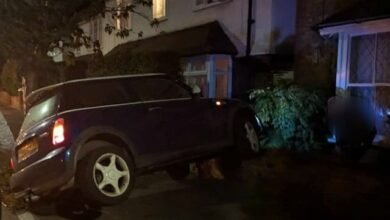Court of Protection Property and Affairs Update: TA v the Public Guardian [2023] EWCOP 63

Introduction
1. The decision of TA v the Public Guardian [2023] EWCOP 63 has just been published. It is one of very few Court of Protection decisions from 2023 touching upon its property and affairs jurisdiction so, for me as a regular in that arena, it’s exciting stuff.
2. The issue in the case was the extent of the duties owed by an individual who provides a certificate under paragraph 2(1)(e) of Schedule 1 to the Mental Capacity Act 2005 (“paragraph 2(1)(e)”) Is the duty simply to provide a certificate, or to hold an opinion on the matters set out in paragraph 2(1)(e)?
3. As explained below, the Court rejected the view that the provision of a certificate was form over substance. Certificate providers need to hold (and be able to evidence if necessary) their opinion in the matters set out in paragraph 2(1)(e). It is not just a case that a certificate needed to be provided.
The facts
4. KA (“P”) is a 92 year old woman with three children: TA, the Applicant in the proceedings, and two sons, one of whom is known in the judgment as HC.
5. P executed two Lasting Powers of Attorney:
- One, on 12 January 2021, in respect of property and financial affairs. It was registered with the Public Guardian on 16 March 2021 and appointed TA the sole attorney.
- One, on 01 April 2021, in respect of health and welfare. It was registered on 22 June 2021 and appointed TA the sole attorney (jointly “the LPAs”)
6. The certificate provider for the LPAs was TA’s ex mother in law and friend known in the judgment as X.
7. In September 2021, HC instructed solicitors with a view to revoking the LPAs and executing new ones appointing all three children as attorney. HC’s solicitor attended upon P and determined that P lacked capacity to execute new instruments.
8. The Public Guardian for reasons that are not set out in the judgment determined to investigate the making of the LPAs. As is typical in such investigations, a Special Visitor was instructed to visit P and correspondence sent to X as the certificate provider.
9. Within her evidence, X had explained to the Public Guardian as follows:
“… Regarding discussions I had with her about the LPAs, I just asked her if she was happy about it, and she was. I spoke to her about it on the phone, and I expect her partner was in the room with her during the conversation. I do not feel [KA] was under any pressure to make the LPAs as she sounded cheerful and was in good spirits. She sounded like her normal, usual self. [KA] did not express any particular wishes to me about who she wanted to be her attorneys. She did not express any wishes about how her attorneys should act…” (my emphasis)
10. Following its investigation, the Public Guardian issued an application seeking to cancel the LPAs on the basis that they were invalid. Again, the specific nature of the application is not set out in the judgment but, presumably, the Public Guardian sought a declaration that the LPAs were not validly executed because one of the formalities had not been complied with, namely, the proper giving of a certificate.
11. That application came before HHJ McCabe who, in giving judgment, had to interpret paragraph 2(1)(e). In her interpretation, HHJ McCabe concluded that:
“37….I consider that there are some aspects of the relevant legislation that provide clear guidance to a certificate provider as to what is expected of them. I start with section 2 (e) of schedule 1. The certificate provider is required to provide an opinion, not just to witness a signature, and it is an opinion that : i) the donor understands the purpose of the instrument and the scope of the authority conferred under it, ii) no fraud or undue pressure is being used to induce the donor to create a LPA, and iii) there is nothing else which would prevent a LPA from being created by the instrument.
38. In my judgment, reading the above section as ‘ordinary words’ plainly requires the certificate provider, in order to provide the certificate, to take some steps to satisfy themselves of the matters set out in section 2 (e), otherwise they cannot be considered validly to provide the opinion. This opinion is one of the requirements for the creation of an LPA, and what is required is the provision of an opinion, not merely the witnessing of a signature.
39. If the Court is asked, as I am, to exercise its powers under section 22 of the MCA, namely to ‘determine whether one or more of the requirements for the creation of a LPA have been met’, it follows that the Court must be entitled to look for evidence that the requirements have been met. Such evidence has manifestly not been provided in the current case, limited as it is to simply the asking and answering of a question “are you happy with the LPA”?
40. … It is difficult to understand how the certificate provider could conceivably have satisfied herself that [KA] ‘understood the scope of the authority, that there was no undue pressure or inducement, and that there was nothing else to prevent the LPA being created‘ without asking the very questions of the donor that were set out in the enquiries by the OPG investigator.
41. An opinion provider must, as a matter of basic common sense, never mind legal sense, satisfy themselves that their opinion is reasonably held, otherwise they are acting in a plainly unreasonable way. This is not to open some vast floodgates, to import some highly technical or supremely onerous duties upon the certificate provider, just that which is basically to be expected in order to satisfy the provisions of section 2 (e). If they do not so satisfy themselves then they are outwith the requirements of that section…”
The decision
12. TA appealed. The matter came before Lieven J who dismissed the appeal, considering that the approach adopted by the first instance judge was correct. The reasons are fully set out at paragraphs 29-34 but are, in summary:
a. Paragraph 1(2)(e) explicitly requires a certificate to have specific content, namely an opinion on three specific matters: (a) that the donor understands the purpose of the instrument and the scope of the authority conferred under it, (b) no fraud or undue pressure is being used to induce the donor to create a LPA, and (c) there is nothing else which would prevent a LPA from being created by the instrument. A valid certificate must therefore be based on an opinion about these matters. If the evidence demonstrated that the certificate provider did not have such an opinion (such as X’s email which failed to address the three matters under Paragraph 2(1)(e)), the certificate would not be valid.
b. It follows that the court is entitled to check that the requisite opinion was formed.
c. The statutory context supports that view as the certificate is an important part of the procedure to ensure that a valid instrument has been entered and to provide reassurance / a safeguard that there was no barrier to the entering of the instrument.
The impact of the decision on practitioners
13. This decision is a useful one for Court of Protection and Private Client solicitors more generally. It has clarified what, in reality, was likely to have been common practice already.
14. When you are advising clients on executing Lasting Powers of Attorney, or acting as a certificate provider yourself, you need to ensure that you ask the correct questions to allow yourself to form an opinion on the three key issues stated at paragraph 2(1)(e) of schedule 1 to the MCA:
- That the donor of the instrument understands the purpose of the instrument and the scope of the authority conferred under it;
- That no fraud or undue pressure is being used to induce the donor to create an instrument;
- That there is nothing which would prevent a lasting power of attorney from being created by the instrument.
15. Solicitors will want to ensure that a detailed attendance note is taken and retained where they are acting as a certificate provider documenting the questions and answers given to elicit the information needed to form an opinion on the matters at Paragraph 2(1)(e), but also their analysis of the answers and an explanation of why those answers allow them to reach their informed opinion. It will be important to get it right – it may be helpful evidence one day.
16. Where advising clients on executing instruments, written advice will need to be given to assist clients facilitate their certificate provider to do the same.





